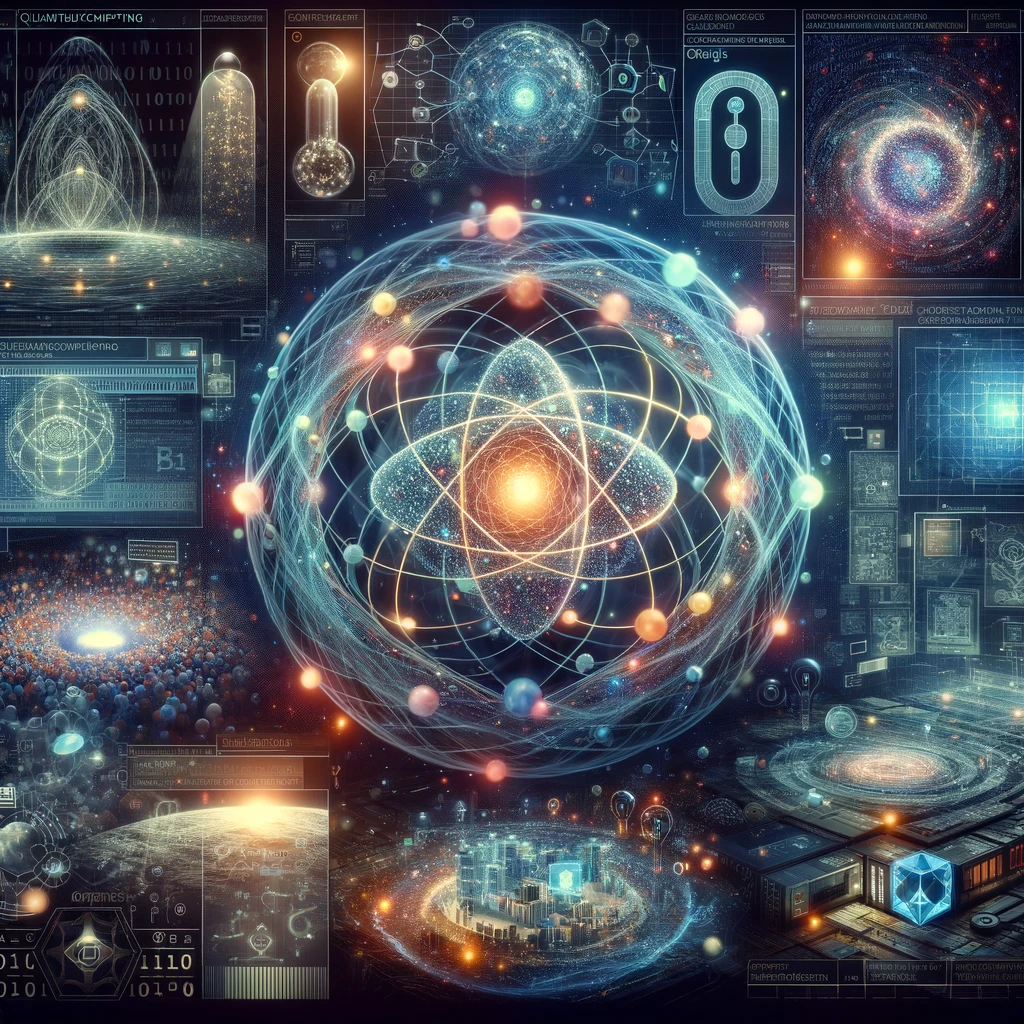
Introduction
The convergence of Quantum Computing (QC) and Artificial Intelligence (AI) heralds a transformative era in technology, promising unprecedented advancements while posing novel challenges. Inspired by recent discussions in “The Hindu Business Line,” this editorial delves into the symbiotic relationship between QC and AI, exploring how this pairing could redefine computational capabilities and intelligence.
Quantum Computing and AI: A Primer
Quantum computing, with its qubits and quantum mechanics, offers a leap in processing power and efficiency, potentially solving problems deemed intractable for classical computers. When intertwined with AI’s prowess in learning and automation, the duo stands to revolutionize sectors ranging from secure communications through quantum networking to climate modeling and healthcare, enhancing both the speed and accuracy of our solutions.
Potential Applications and Societal Impacts
The fusion of Quantum Computing (QC) and Artificial Intelligence (AI) represents a crucial area of study for UPSC aspirants, especially those focusing on Science and Technology for their prelims and mains preparation. This article provides a comprehensive understanding of how QC and AI can revolutionize various fields, from secure communications through quantum networking to advancements in drug discovery, climate modeling, and beyond.
- Quantum supremacy
- Ethical and Data-related challenges
- Quantum-AI convergence
Challenges in Data and Ethics
The fusion of Quantum Computing (QC) and Artificial Intelligence (AI) heralds a new era of technological synergy, offering unprecedented computational power and intelligence. Quantum computing utilizes qubits, capable of representing and processing data in multiple states simultaneously, unlike classical bits. This quantum advantage enables the handling of complex algorithms at speeds unattainable by traditional computers. When coupled with AI’s machine learning capabilities, the duo promises to revolutionize various sectors including secure communication through quantum networking, optimization in logistics and finance, and advancements in cryptography.
Navigating the Future: Solutions and Guidelines
As future leaders and UPSC aspirants, it is imperative to understand the multifaceted implications of this convergence and actively contribute to shaping a future where technology serves humanity responsibly. To leverage the potential of Quantum-AI synergy effectively, a multidisciplinary approach involving policy formulation, ethical considerations, and continuous innovation is essential.
- Policymakers and future administrators must advocate for and implement robust frameworks that ensure the ethical use of these technologies, prioritize data privacy, and mitigate biases.
- Fostering collaborations between governments, academia, and the private sector can accelerate advancements while ensuring equitable benefits.
- Investing in education and skill development is crucial to prepare the workforce for emerging tech-driven economies.
- Nurturing an ethos of ethical technology use and advocating for global cooperation in managing technological advancements will be key to harnessing the power of Quantum-AI convergence for the greater good of society.
Conclusion
The intersection of quantum computing and artificial intelligence heralds a new era of technological revolution, with the potential to unlock unprecedented possibilities across various sectors. As UPSC civil services aspirants, understanding the intricate dynamics of this convergence is crucial, not just from a technological standpoint but also in terms of its societal, ethical, and policy implications. Embracing this change requires a holistic view that integrates ethical considerations with technological advancements, ensuring that the digital future is equitable, secure, and enhances the human experience.


